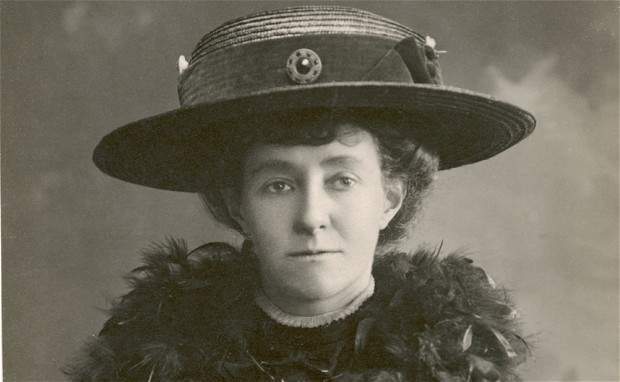
It took Emily Davison four days to die. The injuries that the women’s liberation activist sustained when, a century ago, she leapt in front of the king’s racehorse at the Epsom Derby were not enough to kill her outright. She died in hospital on 8 June 1913 amid public condemnation; the queen mother sent her apologies to the jockey that his race had been interrupted by a “brutal lunatic woman” demanding, of all crazy things, the vote.
Parliament and the press were agreed: this was not legitimate protest, but a “mad act”, according to the Morning Post. What could prompt a person to do such a thing? Davison was born in Blackheath, London, in 1872, studied literature at Royal Holloway for as long as she could afford the fees, and then worked as a governess before joining the Women’s Social and Political Union – what we now call the suffragette movement – fulltime at the age of 32. She obtained the maximum amount of education and personal freedom permitted to a middle-class woman of her generation and it wasn’t enough. I imagine it felt a bit like drowning.
In old footage of the suffragettes, they look like a gang of angry bantams, flapping about in their outsized hats and ridiculous full skirts. The very word “suffragettes” sounds like the kind of fusty, village-hall girl band your auntie might sing in at weekends, rather than a revolutionary organisation whose members were prepared to die so that others might live free. The grudging account of the women’s liberation movement in official histories refers to force-feeding, but edits out the full extent of the torture of activists who were considered mad terrorists for asking that the state treat women of all classes as rational human beings.
Some historians mention that Davison had been reckless with her safety on other occasions as evidence that she was “merely” suicidal, arguing that she desired to die under any circumstances and that this somehow invalidates her decision to do so in public while waving the banner of women’s suffrage. Davison certainly had form for doing outrageous things in the name of women’s liberation. She was arrested nine times – for arson, for public nuisance and for throwing stones at the prime minister’s carriage.
During her imprisonment, when she and other activists were being force-fed – a process that was agonising and degrading and sometimes involved anal rape with metal tubes – she threw herself down an iron staircase in protest. In retaliation for her refusal to co-operate, the guards put a hosepipe into her cell and slowly filled it with water until she almost drowned.
Try to imagine, just for a second, what that must have been like. How long must it have taken for the cell to fill with freezing water, closing around your ankles, your knees, then your chest, your impractical skirts first buoying you up and then dragging you down? How long would it take until the choking, numbing water did not drown your nightmares every time you tried to sleep? What might it mean, under such circumstances, to be crazy, to be consumed with rage, to have a death wish?
Madness is often political. There are situations in which extreme emotional distress is the only rational response to overwhelming circumstance, where “sanity” is little more than the medical term for acquiescence. Women in the early 20th century, a time when female sexual and social freedom was pathologised, frequently went insane, killed themselves or suffered debilitating “nerves”, as documented by writers such as Zelda Fitzgerald and Charlotte Perkins Gilman. Frequently those who rebelled in more tangible ways, by acting out, sleeping around or refusing to submit to men in the home or workplace, were declared insane and sent away to rot in asylums by their spouses and relatives. For many middle-class women, the suffragette sash became a way of organising sentiments that would otherwise have been sectionable. Undoubtedly, by the standards of her day, Emily Davison was deranged, her entire life a “mad act” – yet that does not make it illogical.
Oppressive systems are not all of a kind. They do, however, share an indifference to those whose inability to bear the privations of the imposed social order results in collapse, breakdown and death. The present British government, to give one example, has accustomed itself to the suicides of poor and disabled people cut off by its austerity programme. It encourages a narrative which suggests that such people are “merely” disturbed, that benefit recipients are selfish “scroungers”. What such systems cannot cope with is those who are able, by virtue of circumstance or force of personality, to turn that rage and distress outwards, rather than letting it consume them from within.
Such people often become known to the police. We call them rebels, or activists, or colossal bloody headaches, depending on our point of view and place of employment. Emily Wilding Davison made trouble. She made herself intolerable to a system she found impossible to tolerate. It is thanks to women like her, and the few men who supported them, that far fewer of us today know what it is to be forced to submit to a husband, to be politically disenfranchised, to be denied the right to control our own bodies and our own children – though that work is far from complete. There are situations in which you can choose to toss yourselves under the hooves of history, or choose to drown. Emily Davison made the only choice she could bear. We should remember that, when we remember her.





